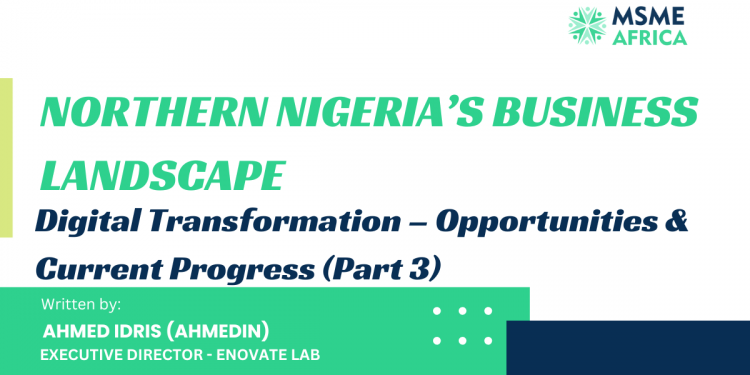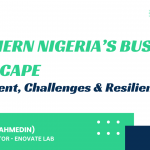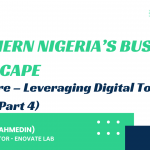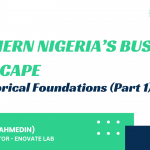In Kad-ICT-Hub Kaduna, a co-working space powered by humming solar inverters, a group of young developers are building fintech solutions to power Nigeria’s financial sector. Nearby, Sudo Africa’s founders are reimagining digital payments for the region’s cash-heavy economy. These scenes capture a quiet revolution: Northern Nigeria’s tech ecosystem is finally awakening, leveraging digital tools to leapfrog decades of infrastructural neglect. But can it overcome the region’s deep-rooted challenges?
Startups & Hubs: The New Industrialists
Walk through Kano’s tech hubs, and you’ll meet a new kind of trader—one who deals in apps instead of fabrics, but keeps that same Northern hustle. Take Zainpay, which moves ₦1 billion monthly through phones instead of market stalls. Or Farmcrowdy, bringing 50,000+ farms online like modern-day market middlemen. Then there’s eKasuwa.com—Kano’s clever workaround for terrible roads. “Why fight traffic?” laughs founder Khadijah. “We take orders on WhatsApp, customers pick up from their local kiosk.” Simple. Effective. Pure Northern ingenuity. Places like Enovate Lab have become the new craft schools, training 5,000+ coders in skills their grandparents couldn’t imagine. In Borno, former conflict kids now talk about blockchain between sips of kunu. At Lumilab in Katsina, they’re building apps for farmers battling drought—because Northern tech solves Northern problems first. But here’s the rub: while Lagos startups swim in venture cash, these Northern innovators scrape by on fumes—less than 5% of Nigeria’s tech funding comes up here. “We’re building gold with straw,” says Enovate Lab’s Executive Director, watching another power cut kill their servers. The market women of Kantin Kwari would understand. They’ve survived for generations by adapting. Now, their digital grandchildren are doing the same—just with poorer tools and bigger dreams.
Fintech’s Frontier: Banking the Unbanked
As Southern Nigeria’s fintech scene chases global trends, homegrown solutions are emerging to tackle Northern Nigeria’s unique financial exclusion challenges. Moniepoint—originally from Lagos but now deeply embedded in the North—has built an army of 15,000+ local agents who function as human ATMs, bringing banking to villages without branches. MTN MoMo has adapted to Northern Nigeria’s cooperative culture, enabling farming groups to receive digital payments while cashing out through trusted community agents. Meanwhile, Northern-born tech leaders are influencing the sector nationally; Sokoto-educated Kabiru Yabo co-founded Lagos-based Tap and Pay, bringing his understanding of low-connectivity commerce to QR code solutions that could eventually bridge North-South trade. ‘You can’t just scale Southern fintech models northward,’ explains Ahmad Muhammad of Jos-based HostRack, which powers many local payment systems. ‘We’re building for environments where electricity is scarce but social trust runs deep—that requires completely different tech architecture.’ These hybrid approaches are proving that financial inclusion demands more than just apps—it requires systems built around Northern Nigeria’s cultural and infrastructural realities.
Government’s Hit-and-Miss Efforts
Government efforts to accelerate Northern Nigeria’s digital transformation have yielded mixed results. On the positive side, initiatives like NITDA’s 3 Million Technical Talent (3MTT) program are equipping thousands of Northern youths with in-demand skills like data analytics and cybersecurity, while Kaduna’s tech revolution under former Governor El-Rufai successfully attracted startups through tax incentives and improved infrastructure. However, these gains are undermined by persistent systemic failures: 70% of tech hubs still depend on costly diesel generators due to unreliable grid power, and fiber optic networks—the backbone of digital economies—abruptly end at state capitals, leaving rural innovators in a connectivity desert. This patchwork progress reveals a troubling disconnect between well-intentioned programs and the foundational investments needed to sustain them—leaving Northern Nigeria’s tech ecosystem running on makeshift solutions when it needs reliable infrastructure to truly compete.
The Pioneers
Northern Nigeria’s digital transformation owes much to its visionary pioneers who are bridging gaps through innovation. Sim Shagaya, the serial entrepreneur behind Konga, ULesson and Miva Open University, is revolutionizing education access—his platforms now deliver affordable, quality learning to thousands across the region, particularly in underserved communities. Meanwhile, Hafsah Jumare’s CoAmana platform tackles one of the North’s most critical sectors, using digital tools to connect smallholder farmers directly with buyers, reducing post-harvest losses and improving incomes. These trailblazers exemplify a growing class of Northern tech leaders who combine deep local understanding with global ambitions, proving that solutions born from the region’s unique challenges can have continent-wide impact. Their work demonstrates how homegrown innovation, when properly supported, can transform Northern Nigeria from a consumer of technology into a creator of solutions tailored for emerging markets worldwide.
The Road Ahead
The path forward for Northern Nigeria’s digital economy demands solutions as unique as its challenges. First, hybrid models that combine mobile tech with existing informal networks—like using WhatsApp groups to coordinate with traditional farmer cooperatives—could bridge the digital divide while respecting entrenched systems. Second, unlocking local capital through funds like Afriventures and Sabou Capital is critical; these Northern-focused investors understand the region’s risk profile and potential better than distant venture firms. Most urgently, policymakers must implement tailored reforms like spectrum sharing to expand rural internet access and incentives for solar-powered tech hubs, bypassing the region’s energy deficits. “We don’t need handouts, we need infrastructure that works with our realities,” argues Adamawa-based tech founder Amina Bello. This three-pronged approach—blending digital and analog, deploying local capital, and crafting region-specific policies—offers Northern Nigeria its best shot at leapfrogging into the digital age without leaving its communities behind.










